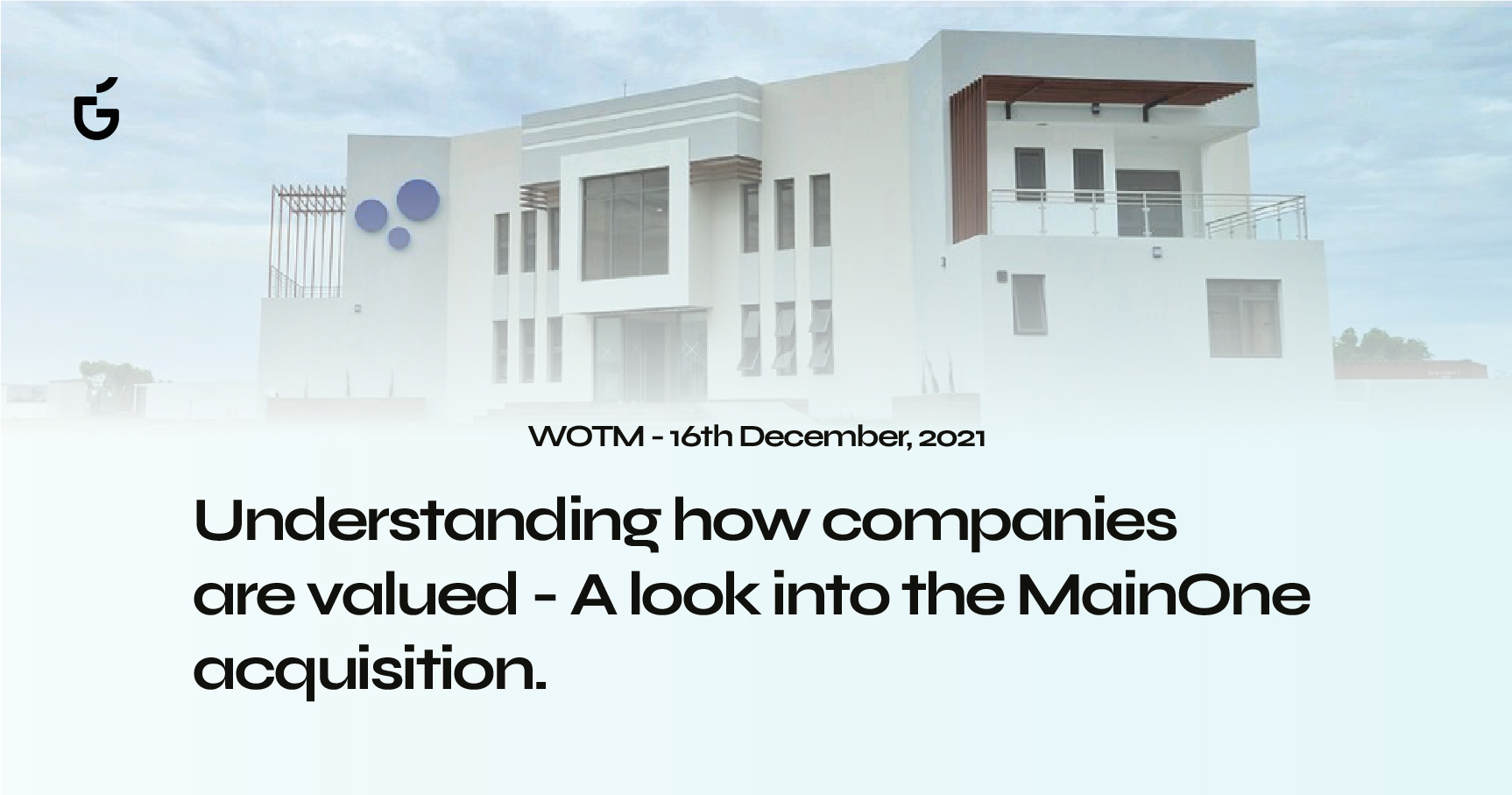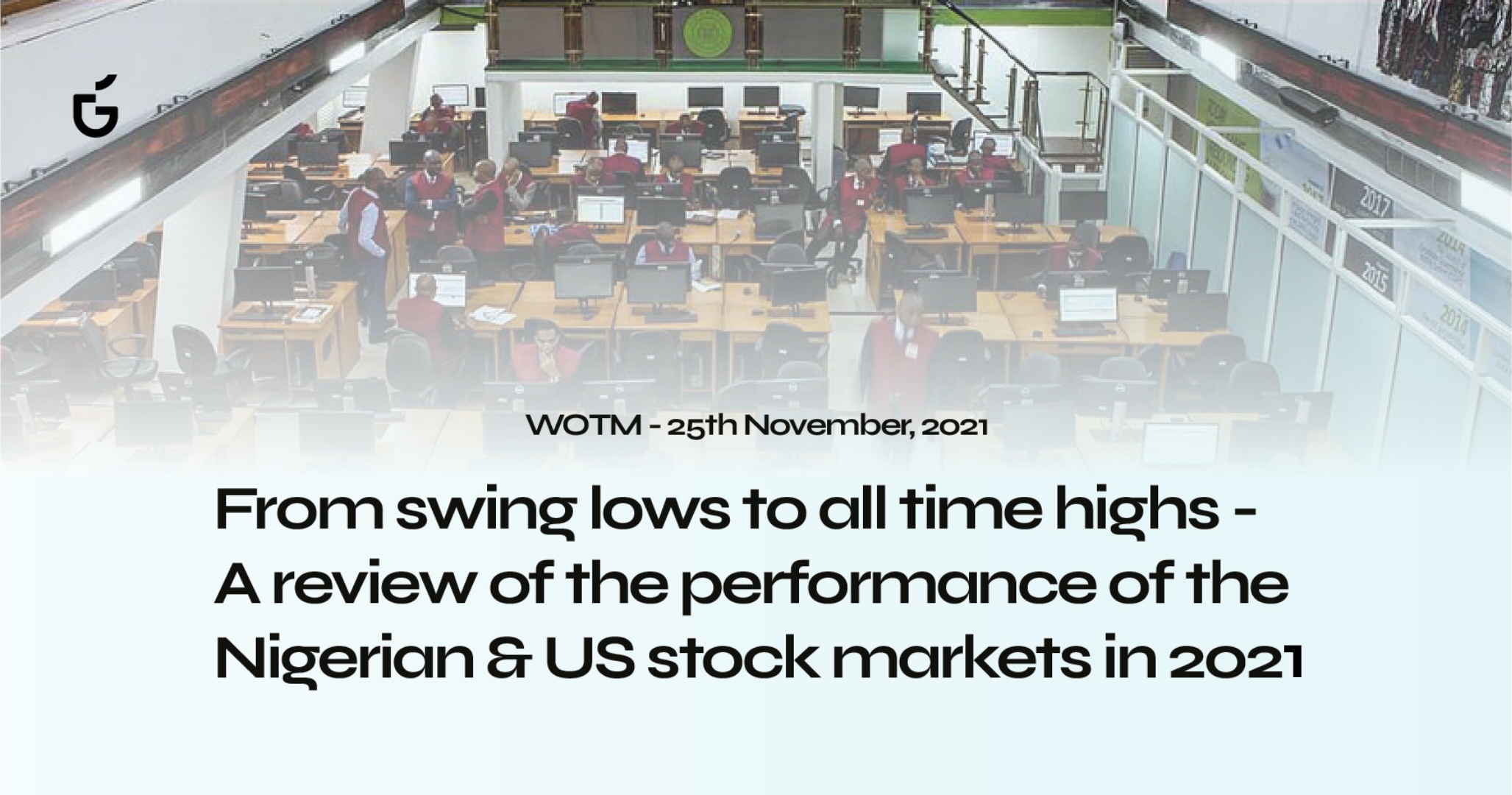 Africa
AfricaUnderstanding how companies are valued – A look into the MainOne acquisition
15 December, 2021
17 March, 2021 | 4 MINS READ
The Story
On the 11th of March 11th 2021, the PPPRA (Petroleum Products Pricing Regulatory Agency) , an agency in Nigeria released a template for pricing fuel on its website. This template stated an expected retail pump price for the sale of petrol as a price within range N209.6 to N212.61. Prior to this news, the retail pump price stood at N162. Of course the proposed 29% increase led to an uproar by Nigerians.
Due to the uproar on social media and the streets of Nigeria, the PPPRA released a statement the day after to clarify that the prices posted were only indicative of current market trends not a call to increase the fuel pump price.
The PPPRA was established by the government of Nigeria in 2003 to, among other responsibilities, monitor and regulate the supply and distribution, and determine the prices of petroleum products in Nigeria.
The agency does not fix retail petrol pump prices but it provides a provisional guide on the expected market price based on the cost of refining crude oil to produce downstream products such as petrol.
NNPC is the only recognised importer of petroleum products into Nigeria, and our sources state that NNPC is the institution that actually determines the retail price of petroleum products to the marketers.
Global crude oil prices, to a large extent, determine the cost at which the NNPC imports refined petroleum products into the country. When crude oil prices rise, the refined petroleum products such as PMS (petrol), AGO (Diesel) and Gas will sold by the NNPC to local marketers in Nigeria at a higher price. Basically, global crude oil prices determine the price the NNPC buys at and that determines the retail petrol pump price in the country.
Nigeria is exposed to the volatility in petrol pump price due to the fact that our local refineries do not produce enough petrol or diesel to meet the demand within the country. In addition, the government’s subsidy policies are inconsistent. Last year, the federal government announced they would not be subsidising the retail pump price of petrol anymore, However, it appears that the FGN still secretly subsidises the cost of petrol to avoid the labour union backlash, based on the expected retail pump price shared by the PPPRA.
Historically, every government administration in Nigeria has had a different fuel pricing policy. Prior to the year 2020, the last major announcement about eliminating the subsidy cost to government was in January 2012. At the time, the retail fuel pump price was increased from N65 to N140,. Subsequently, fuel price was reduced to N120 but in 2016, prices were raised again to N145.
Due to the pandemic and global economic lockdowns, we saw the price of crude oil drop significantly in 2020. This led to a slight decrease in retail fuel prices but it’s been a topsy turvy situation in 2021 as the crude oil prices surge again.
As an investor ,you should note that this consistent increase in retail fuel prices feeds inflation. In Nigeria, electricity is not available for 24hrs therefore, petrol and diesel expenses eat into the profit of most small businesses. It also creeps into your personal expenses as your spend on buying from small businesses will rise. So will the cost of fueling your car or household.
If you ever thought about cutting your budget for investing, now’s not the time. Yes, your expenses will rise as a result of the increase but you cannot afford to stop putting your money to work.
Putting your money to work in credible investment opportunities ensure that you continue to earn additional streams of income or buy up assets that provide cashflow for you over time.
As always, our focus is to bring you the most credible investment opportunities to help you build your investment portfolio. We’re committed to this and we believe you should continue to actively invest in these investment opportunities when they are available. They earn you additional income and also keep the businesses we raise money for in business.
Not a member of TGIC yet? You should join us to avoid the creep on your personal expenses with no investment income to help keep you afloat. Click here to join our private investment community today
 Africa
Africa15 December, 2021
 Africa
Africa09 December, 2021
Join the biggest
investment club in Nigeria.